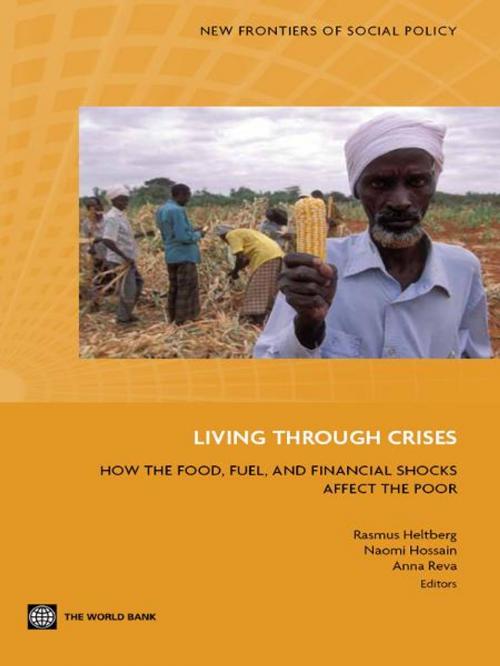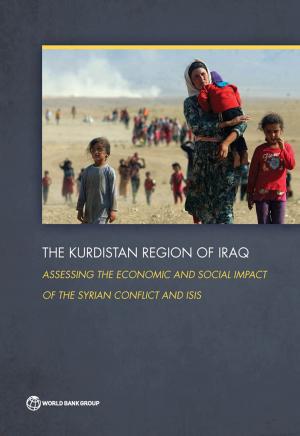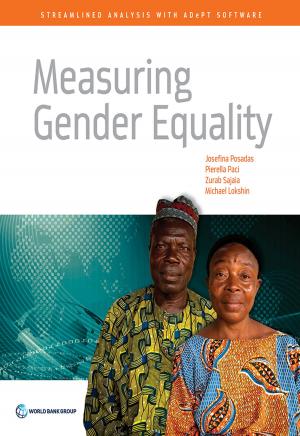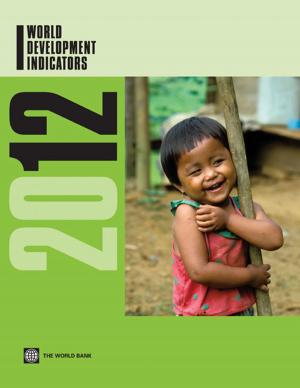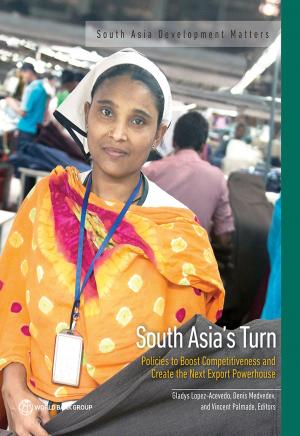Living through Crises: How the Food, Fuel, and Financial Shocks Affect the Poor
Nonfiction, Social & Cultural Studies, Social Science, Sociology| Author: | Rasmus Heltberg, Naomi Hossain, Anna Reva | ISBN: | 9780821394601 |
| Publisher: | World Bank Publications | Publication: | April 2, 2012 |
| Imprint: | Language: | English |
| Author: | Rasmus Heltberg, Naomi Hossain, Anna Reva |
| ISBN: | 9780821394601 |
| Publisher: | World Bank Publications |
| Publication: | April 2, 2012 |
| Imprint: | |
| Language: | English |
What did the global food, fuel, and financial crises of 2008-11 mean to people living in the developing world? How did people cope with the crisis and how effective were they at averting major impacts? These are the questions addressed by this book, which emerged out of qualitative crisis monitoring initiatives carried out by IDS and the World Bank. As such, this is not a book about the causes of the crisis or how to prevent future crises. Instead, this book is about how people lived through the severe economic turmoil of recent years, how they were affected, and what they did to cope, presenting the compelling perspectives of affected communities in developing and transition countries on shocks and coping, vulnerability and resilience. The book brings together qualitative crisis monitoring conducted during 2008-2011 in communities in sixteen countries, including eight country case studies that illustrate how people in specific localities were impacted by global shocks, what coping strategies they applied, and which sources of support proved helpful. The studies in this book reveal striking similarities in people’s coping responses across otherwise different countries. They also reveal widespread concern over high and volatile food prices, suggesting that the still ongoing global food crisis needs far more attention from policymakers. As the most comprehensive qualitative research on crisis impacts and coping carried out in developing countries, the book also highlights the capacity for participatory research to pick up impacts and responses that other approaches may miss and contributing to the knowledge of how to qualitatively assess shocks, vulnerability, and resilience. This book will serve as an indispensable source of reference for future crisis monitoring efforts. Written in accessible language, this book will help specialists and non-specialists alike understand how large economic crises impact people and communities and what is the role of public policy in protecting against risk.
What did the global food, fuel, and financial crises of 2008-11 mean to people living in the developing world? How did people cope with the crisis and how effective were they at averting major impacts? These are the questions addressed by this book, which emerged out of qualitative crisis monitoring initiatives carried out by IDS and the World Bank. As such, this is not a book about the causes of the crisis or how to prevent future crises. Instead, this book is about how people lived through the severe economic turmoil of recent years, how they were affected, and what they did to cope, presenting the compelling perspectives of affected communities in developing and transition countries on shocks and coping, vulnerability and resilience. The book brings together qualitative crisis monitoring conducted during 2008-2011 in communities in sixteen countries, including eight country case studies that illustrate how people in specific localities were impacted by global shocks, what coping strategies they applied, and which sources of support proved helpful. The studies in this book reveal striking similarities in people’s coping responses across otherwise different countries. They also reveal widespread concern over high and volatile food prices, suggesting that the still ongoing global food crisis needs far more attention from policymakers. As the most comprehensive qualitative research on crisis impacts and coping carried out in developing countries, the book also highlights the capacity for participatory research to pick up impacts and responses that other approaches may miss and contributing to the knowledge of how to qualitatively assess shocks, vulnerability, and resilience. This book will serve as an indispensable source of reference for future crisis monitoring efforts. Written in accessible language, this book will help specialists and non-specialists alike understand how large economic crises impact people and communities and what is the role of public policy in protecting against risk.
